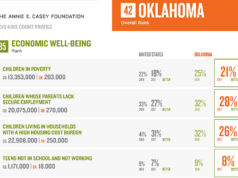The regulation of dietary supplements in the U.S. is limited, and consumers should approach them cautiously.
Unlike traditional pharmaceuticals, dietary supplements are not subject to pre-market testing of safety and efficacy by the Food and Drug Administration. Apart from requiring a list of ingredients on product packages, the FDA holds manufacturers relatively unaccountable prior to supplements reaching consumers.
Left to their own devices
Even the ingredients listed may be inaccurate or incomplete. A New York State attorney general’s report in 2015 found that 80 percent of supplements tested from four nationwide retailers did not contain some or all of the herbal ingredients listed on their packaging.
The problem is not just a matter of what is missing from the bottle but what else may be in it and how much. An outbreak of selenium poisoning in 2010 was traced to an herbal supplement later found to contain more than 200 times the amount of selenium listed on the label. More than 70 percent of the 201 people with symptoms owing to the toxic supplement reported acute hair and fingernail loss, according to a study published in the Archives of Internal Medicine. The supplement was subsequently removed from the market.
These examples illustrate the fundamental problem with the way our governmental agencies regulate the supplement industry: the FDA (and the Federal Trade Commission, to a lesser extent) were designed to be reactive instead of proactive when it comes to dietary and nutritional supplements. Manufacturers are largely left to their own devices when it comes to quality control and testing. Production facilities are not regularly inspected by the FDA or other centralized agencies to prevent problems from occurring beforehand.
No simple solution
There is, unfortunately, no simple solution or quick fix. A centralized, transparent regulatory protocol is needed to standardize and legitimize the supplement industry.
This means rethinking and restructuring large and complex government agencies, which will require initiative from policymakers and will take considerable time and financial resources.
In the meantime, it is important that consumers educate themselves with reliable resources and, most importantly, consult a physician before beginning, changing or stopping supplements. Supplements should be included on medication lists alongside prescription and non-prescription drugs and shared with physicians and other providers.
Patients often forget or choose not to discuss supplements with their doctors. Marketing plays a large part in this breakdown in communication. Products advertised as “all-natural,” herbal or “vitamin-based” mask the fact that most supplements are designed to pharmacologically alter the physiology of the body in some form or fashion. Similar to other medicines or drugs, supplements carry their own side effects and interactions with medications or other supplements.
For example, weight-loss supplements are often stimulant-based and may worsen hypertension or increase the risk of heart disease, stroke or seizures. St. John’s Wort, an herbal remedy used to treat depression or other mood disorders, has been shown to interact with certain cardiac medications or oral contraceptive pills.
Consumer and patient education is a critical first step, and several reputable sources are easily accessible. The National Institutes of Health Office of Dietary Supplements website is a useful database of dietary and herbal supplements. Also, Medscape Reference provides detailed peer-reviewed information about many supplements and medications. Last, the FDA website contains important information regarding supplement use and provides instructions on reporting adverse events.
Still, consumers need to be cautious and should consult a physician about their supplement use.






















